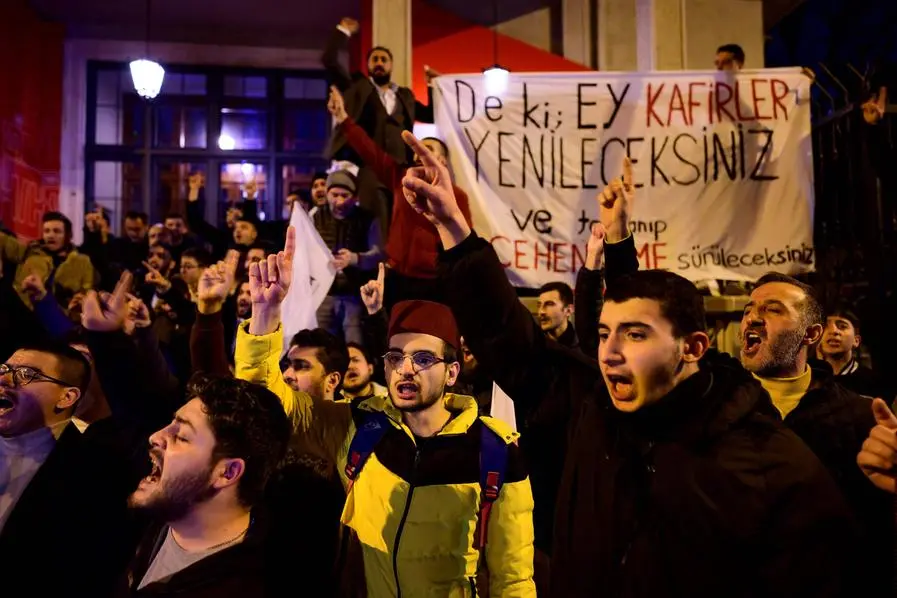PHOTO
Sweden's far-right party on Friday urged the government to block a planned EU migration deal or lose its vital support in parliament.
The anti-immigration Sweden Democrats provide key backing to the minority centre-right government, which currently holds the presidency of the European Union.
The party fiercely opposes EU plans to redistribute newly-arrived migrants between member states.
"It can hardly come as a shock to anyone that the Sweden Democrats want an independent and very strict Swedish migration policy. The EU 'migration pact' would mean the opposite in practice," party leader Jimmie Akesson said.
"We will not accept that Swedish voters' power over migration policy is handed to politicians and bureaucrats in Brussels. Period," he wrote on Facebook.
Shortly before that, another senior party member demanded the government block the text.
"Otherwise, I have a hard time seeing how the basis of our cooperation can continue," Mattias Karlsson wrote.
European MPs on Thursday voted in favour of opening negotiations with EU member states on the thorny reform, hoping to reach agreement by spring 2024.
The text was drawn up by Swedish Euro MP Tomas Tobe, a member of Swedish Prime Minister Ulf Kristersson's conservative Moderates Party.
Conservative, eurosceptic and far-right lawmakers in the European parliament voted against the text on Thursday.
The text calls for a mechanism of mandatory solidarity to ease the burden on member states facing heavy refugee flows, especially Mediterranean nations taking in migrants after rescue operations at sea.
Member states would mostly be required to send financial or material assistance if they don't take in asylum seekers from other EU countries, but in the event of a sudden and major influx of migrants, the relocation of migrants would become mandatory.
Under current regulations, the first European country where a migrant arrives is in charge of processing the asylum application, which has weighed heavily on countries like Malta, Italy, Greece and Spain.
The European Commission presented its initial plan for a revised mandatory redistribution of migrants in 2020, after a mandatory quota system introduced following the 2015 migrant crisis failed.





















